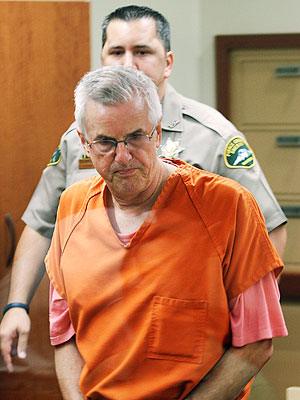DOHA, Qatar (AP) — Hassan al-Kubaisi considers it a gift from above that drivers in oil- and gas-rich Qatar only have to pay $1 per gallon at the pump.
"Thank God that our country is an oil producer and the price of gasoline is one of the lowest," al-Kubaisi said, filling up his Toyota Land Cruiser at a gas station in Doha. "God has given us a blessing."
To those looking for a global response to climate change, it's more like a curse.
Qatar — the host of U.N. climate talks that entered their final week Monday — is among dozens of countries that keep gas prices artificially low through subsidies that exceeded $500 billion globally last year. Renewable energy worldwide received six times less support — an imbalance that is just starting to earn attention in the divisive negotiations on curbing the carbon emissions blamed for heating the planet.
"We need to stop funding the problem, and start funding the solution," said Steve Kretzmann, of Oil Change International, an advocacy group for clean energy.
His group presented research Monday showing that in addition to the fuel subsidies in developing countries, rich nations in 2011 gave more than $58 billion in tax breaks and other production subsidies to the fossil fuel industry. The U.S. figure was $13 billion.
The Paris-based Organization for Economic Cooperation and Development has calculated that removing fossil fuel subsidies could reduce carbon emissions by more than 10 percent by 2050.
Yet the argument is just recently gaining traction in climate negotiations, which in two decades have failed to halt the rising temperatures that are melting Arctic ice, raising sea levels and shifting weather patterns with impacts on droughts and floods.
In Doha, the talks have been slowed by wrangling over financial aid to help poor countries cope with global warming and how to divide carbon emissions rights until 2020 when a new planned climate treaty is supposed to enter force. Calls are now intensifying to include fossil fuel subsidies as a key part of the discussion.
"I think it is manifestly clear ... that this is a massive missing piece of the climate change jigsaw puzzle," said Tim Groser, New Zealand's minister for climate change.
He is spearheading an initiative backed by Scandinavian countries and some developing countries to put fuel subsidies on the agenda in various forums, citing the U.N. talks as a "natural home" for the debate.
The G-20 called for their elimination in 2009, and the issue also came up at the U.N. earth summit in Rio de Janeiro earlier this year. Frustrated that not much has happened since, European Union climate commissioner Connie Hedegaard said Monday she planned to raise the issue with environment ministers on the sidelines of the talks in Doha.
Many developing countries are positive toward phasing out fossil fuel subsidies, not just to protect the climate but to balance budgets. Subsidies introduced as a form of welfare benefit decades ago have become an increasing burden to many countries as oil prices soar.
"We are reviewing the subsidy periodically in the context of the total economy for Qatar," the tiny Persian gulf country's energy minister, Mohammed bin Saleh al-Sada, told reporters Monday.
Qatar's National Development Strategy 2011-2016 states it more bluntly, saying fuel subsides are "at odds with the aspirations" and sustainability objectives of the wealthy emirate.
The problem is that getting rid of them comes with a heavy political price.
When Jordan raised fuel prices last month, angry crowds poured into the streets, torching police cars, government offices and private banks in the most sustained protests to hit the country since the start of the Arab unrest. One person was killed and 75 others were injured in the violence.
Nigeria, Indonesia, India and Sudan have also seen violent protests this year as governments tried to bring fuel prices closer to market rates.
Iran has used a phased approach to lift fuel subsidies over the past several years, but its pump prices remain among the cheapest in the world.
"People perceive it as something that the government is taking away from them," said Kretzmann. "The trick is we need to do it in a way that doesn't harm the poor."
The International Energy Agency found in 2010 that fuel subsidies are not an effective measure against poverty because only 8 percent of such subsidies reached the bottom 20 percent of income earners.
The IEA, which only looked at consumption subsidies, this year said they "remain most prevalent in the Middle East and North Africa, where momentum toward their reform appears to have been lost."
In the U.S., environmental groups say fossil fuel subsidies include tax breaks, the foreign tax credit and the credit for production of nonconventional fuels.
Industry groups, like the Independent Petroleum Association of America, are against removing such support, saying that would harm smaller companies, rather than the big oil giants.
In Doha, Mohammed Adow, a climate activist with Christian Aid, called all fuel subsidies "reckless and dangerous," but described removing subsidies on the production side as "low-hanging fruit" for governments if they are serious about dealing with climate change.
"It's going to oil and coal companies that don't need it in the first place," he said.
___
Associated Press writers Abdullah Rebhy in Doha, Qatar, and Brian Murphy in Dubai, United Arab Emirates, contributed to this report
____
Karl Ritter can be reached at www.twitter.com/karl_ritter












